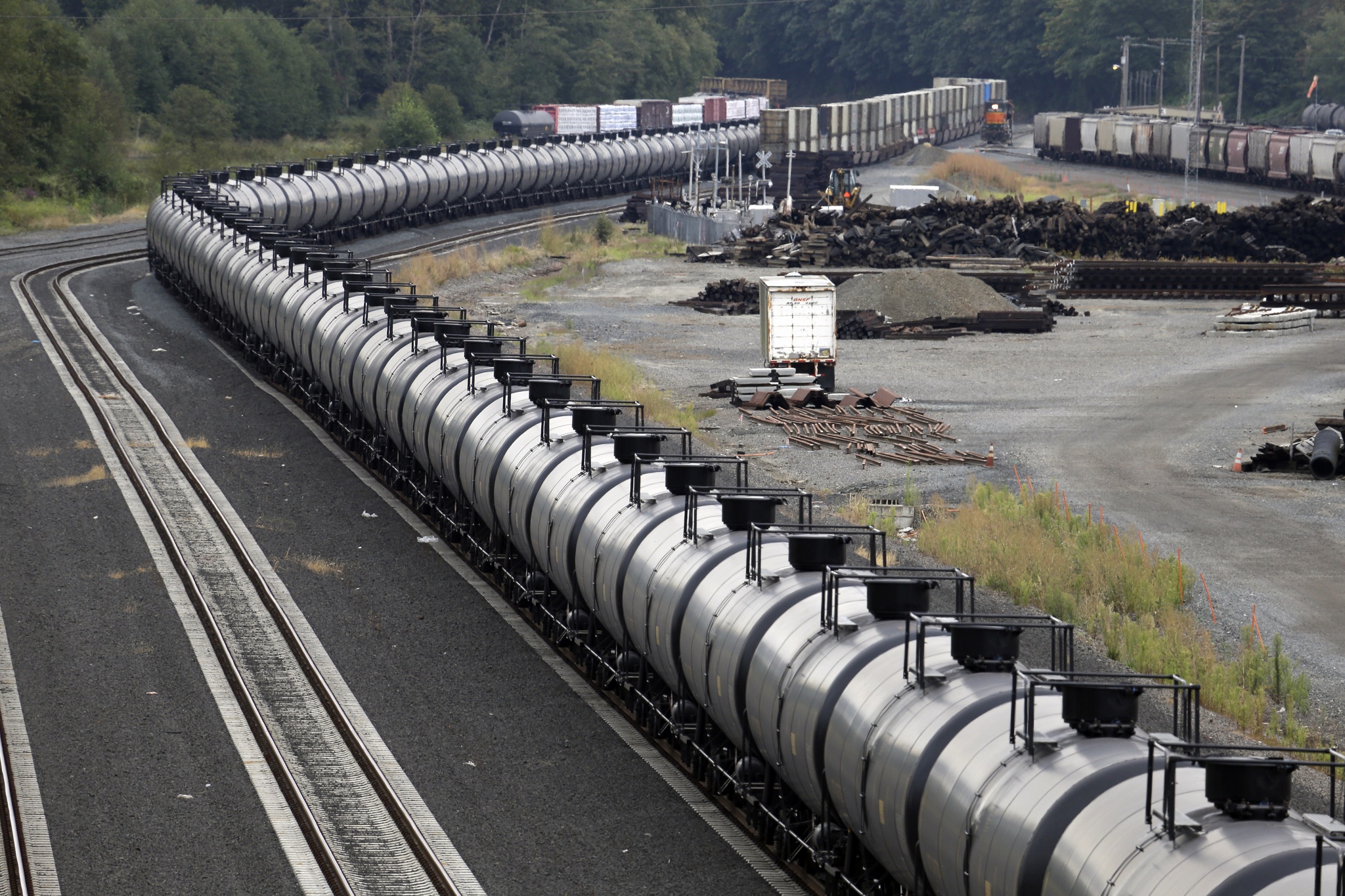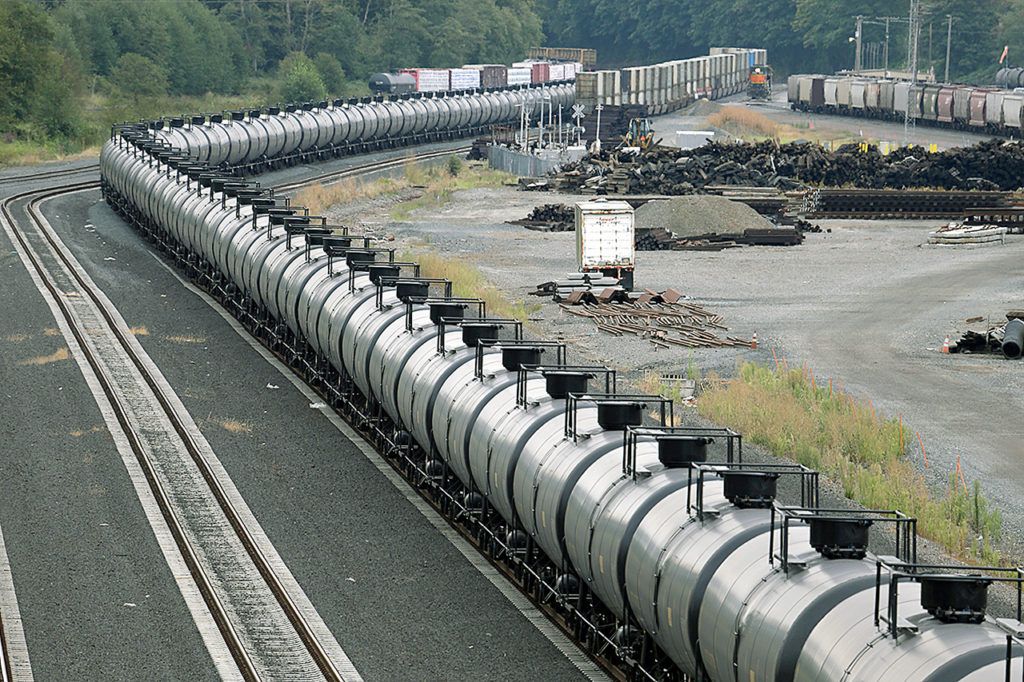By Phuong Le, Associated Press
SEATTLE — With more crude oil expected to move through Washington state, Democratic lawmakers want to toughen rules around oil transportation and raise more money for spill prevention and response efforts.
Companion bills in the House and Senate aim to reduce the risk of oil spills with provisions that target oil carried by vessels, pipelines and trains. Supporters say the legislation is needed to address the growing risks of oil shipped through state waters.
In November, Canadian Prime Minister Justin Trudeau approved Kinder Morgan’s Trans Mountain pipeline expansion project, which will increase from five to 34 the monthly number of oil tankers and barges plying the shared waters of Washington state and Canada.
The pipeline will carry oil from Alberta to the Vancouver area where it will be loaded on to barges and tankers for Asian and U.S. markets. Indigenous leaders and environmentalists object to the project over environmental, health and other risks.
“We’re really trying to stay on top of the changing landscape of oil transportation,” said Rep. Jessyn Farrell, D-Seattle, sponsor of House Bill 1611, which is scheduled to be heard Monday in the environment committee. The companion Senate Bill 5462 is sponsored by Sen. Reuven Carlyle, D-Seattle.
Both measures would require the Department of Ecology to write rules that may require tug escorts and other safety measures for certain vessels such as barges and articulated tug barges through the San Juan Islands and Puget Sound.
Tug escorts are currently required for oil tank ships that transit parts of northern Puget Sound. But vessels such as barges and articulated tug and barges — ships where the tug and barge are combined — aren’t subject to those requirements.
The use of tug escorts for oil-carrying vessels such as articulated tug and barges was identified as the top priority during a recent Salish Sea spills risk workshop hosted by Ecology.
Cliff Webster with The American Waterways Operators testified against SB 5462 at a hearing Thursday. The state has one of the best oil spill prevention and response programs in the country and there has not been a major cargo spill in waters for years, he said.
But “it only takes one incident to deal a major blow to Puget Sound,” said Rebecca Ponzio with the Washington Environmental Council. She said it’s a critical year to act, because of the Trans Mountain project and the federal government has lifted a 40-year ban on crude exports, opening the way for oil to be exported through the state’s refineries.
Under the bills, oil refineries proposing to handle crude oil for export update their spill response and prevention plans. Railroads would have to show they have the ability to pay for cleanup and damage caused in the event of a major oil spill — something vessels and pipelines are required to do.
Johan Hellman with BNSF Railway told lawmakers the provision was redundant, unnecessary and conflicts with federal government rules governing railroads. He said the state law passed in 2015 required railroads to submit financial reports to state regulators to demonstrate fiscal solvency. Supporters say it’s needed to ensure that railroads can pay the costs of a major spill.
The state currently levies two taxes for a total of 5 cents on every barrel of oil received by train or vessels to pay for spill response and prevention measures. The bills would extend that tax to pipelines. It would also eliminate a cap on the 4-cent tax that currently takes effect when the account balance hits a certain amount.
Jessica Spiegel, a spokeswoman with the Western States Petroleum Association, said state figures show that only 3 percent of spills are related to the petroleum industry, such as pipelines, trains or fuel barges.
“We believe it’s time to identify the sources of actual spills and place a share of the funding burden on those who are causing the problems,” she said.
Separately, another bill sponsored by Farrell and requested by Ecology, seeks to raise the oil spill administration tax from by 2.5 cents a barrel, from 4 cents to 6.5 cents. Ecology says it is facing a $4 million shortfall in the next biennium because it only received a one-time transfer of money for work related to the oil transportation law passed in 2015.
“We’ve been successful in the state because we’ve taken a proactive approach,” Farrell said. “We can’t rest on our laurels.”
Talk to us
> Give us your news tips.
> Send us a letter to the editor.
> More Herald contact information.


























